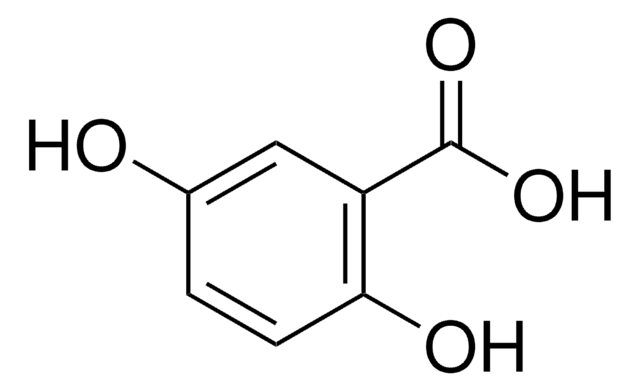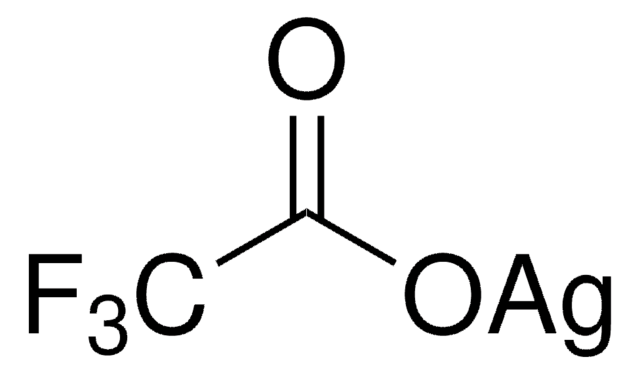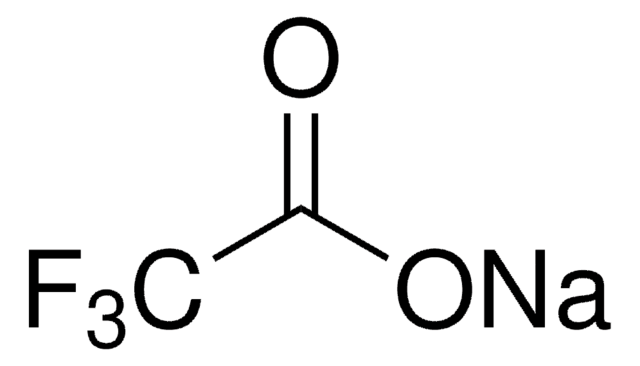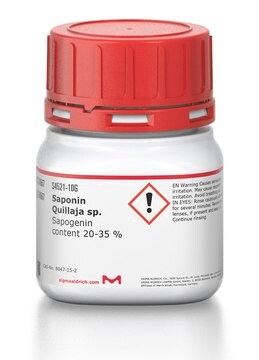727881
trans-2-[3-(4-tert-Butylphenyl)-2-methyl-2-propenylidene]malononitrile
≥98%
Synonym(s):
DCTB
Sign Into View Organizational & Contract Pricing
All Photos(3)
About This Item
Empirical Formula (Hill Notation):
C17H18N2
CAS Number:
Molecular Weight:
250.34
Beilstein:
8913051
MDL number:
UNSPSC Code:
12352100
PubChem Substance ID:
NACRES:
NA.22
Recommended Products
Assay
≥98%
≥98.0% (HPLC)
form
powder
functional group
nitrile
SMILES string
CC(=C/c1ccc(cc1)C(C)(C)C)\C=C(\C#N)C#N
InChI
1S/C17H18N2/c1-13(10-15(11-18)12-19)9-14-5-7-16(8-6-14)17(2,3)4/h5-10H,1-4H3/b13-9+
InChI key
OIASAVWSBWJWBR-UKTHLTGXSA-N
Looking for similar products? Visit Product Comparison Guide
Related Categories
Application
- Soluble Microporous Ladder Polymers Formed by Stepwise Nucleophilic Substitution of Octafluorocyclopentene: This study utilizes trans-2-[3-(4-tert-Butylphenyl)-2-methyl-2-propenylidene]malononitrile in the context of creating soluble microporous polymers, particularly highlighting its utility in enhancing the properties of these materials. The detailed characterization and application in ionization spectra are discussed (Krishnan and Parthiban).
Signal Word
Warning
Hazard Statements
Precautionary Statements
Hazard Classifications
Acute Tox. 4 Dermal - Acute Tox. 4 Inhalation - Acute Tox. 4 Oral
Storage Class Code
11 - Combustible Solids
WGK
WGK 3
Flash Point(F)
Not applicable
Flash Point(C)
Not applicable
Choose from one of the most recent versions:
Already Own This Product?
Find documentation for the products that you have recently purchased in the Document Library.
Customers Also Viewed
Zhihao Huang et al.
Nature communications, 10(1), 1918-1918 (2019-04-25)
Digital polymers with precisely ordered units acting as the coded 0- or 1-bit, are introduced as a promising option for molecular data storage. However, the pursuit of better performance in terms of high storage capacity and useful functions never stops.
Aisling Byrne et al.
Dalton transactions (Cambridge, England : 2003), 44(32), 14323-14332 (2015-07-23)
A first investigation into the application of a luminescent osmium(ii) bipyridine complex to live cell imaging is presented. Osmium(ii) (bis-2,2-bipyridyl)-2(4-carboxylphenyl) imidazo[4,5f][1,10]phenanthroline was prepared and conjugated to octaarginine, a cell penetrating peptide. The photophysics, cell uptake and cytotoxicity of this osmium
Paul A Scattergood et al.
Dalton transactions (Cambridge, England : 2003), 44(26), 11705-11716 (2015-02-17)
The intense absorption in the red part of the visible range, and the presence of a lowest charge-transfer excited state, render Platinum(II) diimine catecholates potentially promising candidates for light-driven applications. Here, we test their potential as sensitisers in dye-sensitised solar
Baowei Zhang et al.
Nature communications, 9(1), 2499-2499 (2018-06-29)
Structural isomerism of colloidal semiconductor nanocrystals has been largely unexplored. Here, we report one pair of structural isomers identified for colloidal nanocrystals which exhibit thermally-induced reversible transformations behaving like molecular isomerization. The two isomers are CdS magic-size clusters with sharp
Tomomi Iura et al.
Rapid communications in mass spectrometry : RCM, 29(2), 155-162 (2015-02-03)
Matrix-assisted laser desorption/ionization mass spectrometry (MALDI-MS) has been widely utilized for the structural characterization of various synthetic polymers. However, polymer sample molecules can occasionally decompose even in the MALDI process depending on the measurement conditions. In this work, the fragmentation
Our team of scientists has experience in all areas of research including Life Science, Material Science, Chemical Synthesis, Chromatography, Analytical and many others.
Contact Technical Service![trans-2-[3-(4-tert-Butylphenyl)-2-methyl-2-propenylidene]malononitrile matrix substance for MALDI-MS, ≥99.0% (HPLC)](/deepweb/assets/sigmaaldrich/product/structures/249/587/f8021369-f65a-413d-887d-3c8a4d2a248f/640/f8021369-f65a-413d-887d-3c8a4d2a248f.png)









